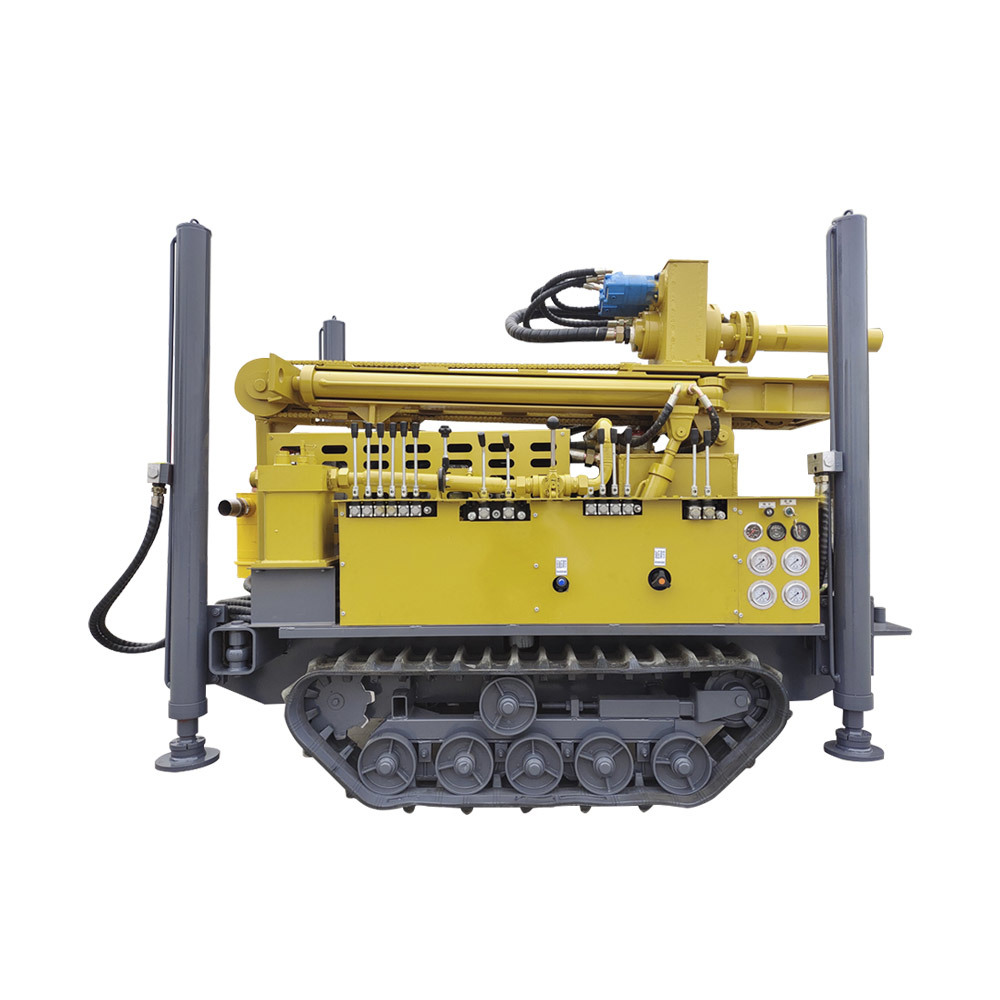The Significant Influence of Mini Water Borehole Rigs on Local Economies
Nov 12,2025

The Significant Influence of Mini Water Borehole Rigs on Local Economies
Introduction
The advent of mini water borehole rigs has revolutionized water accessibility in various regions, particularly in arid and semi-arid areas. These compact machines provide a sustainable solution for water sourcing, which significantly influences local economies. As the demand for fresh water grows, understanding the impact of these rigs becomes essential for community development and economic stability.
What are Mini Water Borehole Rigs?
Mini water borehole rigs are specialized drilling machines designed for creating small-diameter boreholes to access underground water sources. Unlike traditional drilling rigs, these machines are compact, portable, and easier to operate, making them accessible to smaller enterprises and local communities. This section will delve into the features and advantages of mini water borehole rigs.
Features of Mini Water Borehole Rigs
- **Compact Design**: Their small size allows easy transportation and operation in confined spaces.
- **User-Friendly Operation**: Many mini rigs can be operated by a single person, reducing the need for extensive training.
- **Cost-Effective**: These rigs are often more affordable than larger counterparts, making them ideal for small businesses and local governments.
Advantages of Using Mini Borehole Rigs
- **Reduced Water Scarcity**: They provide a reliable water source in areas where conventional water supply systems are lacking.
- **Environmental Sustainability**: By tapping into underground aquifers, these rigs help ensure responsible water management.
- **Enhanced Crop Production**: Increased water access supports agricultural activities, leading to improved food security.
The Economic Benefits of Mini Water Borehole Rigs
Mini water borehole rigs have far-reaching economic implications for local communities. From improving agricultural outcomes to fostering entrepreneurship, the benefits are multidimensional.
Boosting Agricultural Productivity
Access to water is a critical factor in agricultural success. Mini borehole rigs enable farmers to irrigate their crops, which leads to higher yields and increased income. With reliable water sources, farmers can diversify their crop selections, introducing more lucrative options that cater to market demands.
Job Creation and Local Employment
The operation and maintenance of mini water borehole rigs create job opportunities within the community. Local entrepreneurs can establish drilling services, leading to employment for skilled and unskilled labor alike. This job creation contributes to reduced poverty levels, improving the overall economic landscape.
Stimulating Local Businesses
The availability of water through mini borehole rigs enables the establishment of various local businesses, such as food processing units and small-scale manufacturing. As agricultural productivity increases, so does the demand for related services, creating a ripple effect that stimulates local economies.
Social Impacts of Mini Water Borehole Rigs
Beyond their economic contributions, mini water borehole rigs also foster social changes within communities.
Improving Public Health
Access to clean water is fundamental to public health. Mini water borehole rigs help communities avoid waterborne diseases by providing a more reliable source of clean drinking water. Improved health outcomes result in a more productive workforce, further propelling local economic growth.
Strengthening Community Cohesion
As communities come together to manage and operate water resources, social bonds strengthen. Initiatives involving shared ownership of mini borehole rigs can foster collaboration and mutual support, enhancing social cohesion.
Empowering Women and Marginalized Groups
In many regions, women and marginalized groups are disproportionately affected by water scarcity. Mini water borehole rigs can empower these groups by providing them with the resources needed for agricultural and entrepreneurial activities, leading to improved gender equality and social equity.
Challenges and Considerations
While mini water borehole rigs present numerous benefits, there are challenges that need addressing to maximize their impact.
Quality of Water Sources
Not all underground water sources are safe for consumption. Communities must invest in water quality testing and filtration systems to ensure that the water accessed is safe for use.
Regulatory and Environmental Concerns
The over-extraction of groundwater can lead to environmental degradation. Sustainable practices and regulations must be in place to manage water resources effectively and prevent long-term damage to aquifers.
Training and Maintenance
To ensure the longevity and efficiency of mini water borehole rigs, adequate training for operators is essential. Ongoing maintenance and technical support must also be available to address any operational issues.
Future Prospects of Mini Water Borehole Rigs
The future of mini water borehole rigs appears promising as technology and innovative practices continue to evolve.
Technological Advancements
The integration of smart technology in mini water borehole rigs can enhance their efficiency. Features such as remote monitoring and automated drilling processes are on the horizon, potentially making these machines even more effective.
Global Expansion and Adoption
As awareness of the benefits of mini water borehole rigs spreads, their adoption is likely to increase worldwide, particularly in developing countries facing water scarcity challenges. This global expansion can lead to further economic development and community empowerment.
Conclusion
Mini water borehole rigs are more than just machines; they are instruments of change that have the potential to reshape local economies profoundly. By improving access to water, these rigs enhance agricultural productivity, create jobs, and stimulate local businesses while fostering social cohesion and public health. Moving forward, addressing challenges and embracing technological advancements will be crucial to maximizing the benefits of mini water borehole rigs, ensuring they remain pivotal in the sustainable development of communities worldwide.
FAQs
1. What are mini water borehole rigs used for?
Mini water borehole rigs are primarily used to drill small-diameter boreholes for accessing underground water sources, facilitating irrigation, and providing clean drinking water.
2. How do mini borehole rigs benefit farmers?
These rigs enhance agricultural productivity by providing reliable water sources for irrigation, leading to higher crop yields and income for farmers.
3. Are mini borehole rigs environmentally friendly?
Yes, when managed properly, mini borehole rigs can promote sustainable water management and reduce reliance on surface water resources.
4. What challenges do communities face when using mini borehole rigs?
Challenges include potential water quality issues, regulatory concerns regarding groundwater extraction, and the need for operator training and maintenance.
5. How can communities ensure the sustainability of their water sources?
Communities can implement sustainable practices, conduct regular water quality testing, and adhere to regulations that manage groundwater extraction responsibly.
PREVIOUS:








